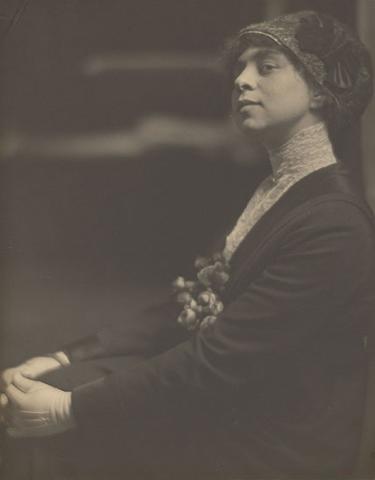
I just have to accomplish what I set out to do, regardless of who or what is in my way.
—Belle da Costa Greene, New York Times, April 7, 1912
Bold, fearless, and uncompromising, Belle da Costa Greene (1879–1950) left an indelible mark on the Morgan Library as its first director. A pioneering figure, she broke barriers for women in the field of rare books and manuscripts. She was born Belle Marion Greener to an elite Black family in Washington, DC. A few years after moving to New York City in 1888, during the age of Jim Crow, she passed as white as Belle da Costa Greene, crossing the color line with her mother and siblings. She left no trace of her thoughts on racial passing and willed this aspect of her history into oblivion by destroying diaries and private papers. To friends and colleagues, however, she wrote thousands of pages of correspondence that capture her wit, humor, brilliance, and ambition. She was remembered as “the soul of the Morgan Library,” as a person whom one “would not have missed knowing for anything.”
This exhibition brings together the Morgan’s collection with objects from over twenty lenders to tell the intertwining narratives of Greene’s personal and professional lives against the backdrop of institutional and national histories. Her legacies are multiple and complex, yet her life resonates widely today and her memory endures.
This exhibition is organized by Philip Palmer, Robert H. Taylor Curator and Department Head of Literary and Historical Manuscripts, and Erica Ciallela, Exhibition Project Curator.
Belle da Costa Greene: A Librarian’s Legacy is made possible by lead support from Agnes Gund. Major support is provided by the Ford Foundation; Mr. and Mrs. Benjamin M. Rosen; Katharine J. Rayner; Denise Littlefield Sobel; the Lucy Ricciardi Family Exhibition Fund; Desiree and Olivier Berggruen; Gregory Annenberg Weingarten, GRoW @ Annenberg; and by a grant from the National Endowment for the Humanities: Democracy demands wisdom. Assistance is provided by the Franklin Jasper Walls Lecture Fund, the Friends of Princeton University Library, Elizabeth A.R. and Ralph S. Brown, Jr., and the Cowles Charitable Trust.
Any views, findings, conclusions or recommendations expressed in this exhibition do not necessarily represent those of the National Endowment for the Humanities.
Clarence H. White (1871–1925), Belle da Costa Greene, 1911. Biblioteca Berenson, I Tatti, The Harvard University Center for Italian Renaissance Studies.



